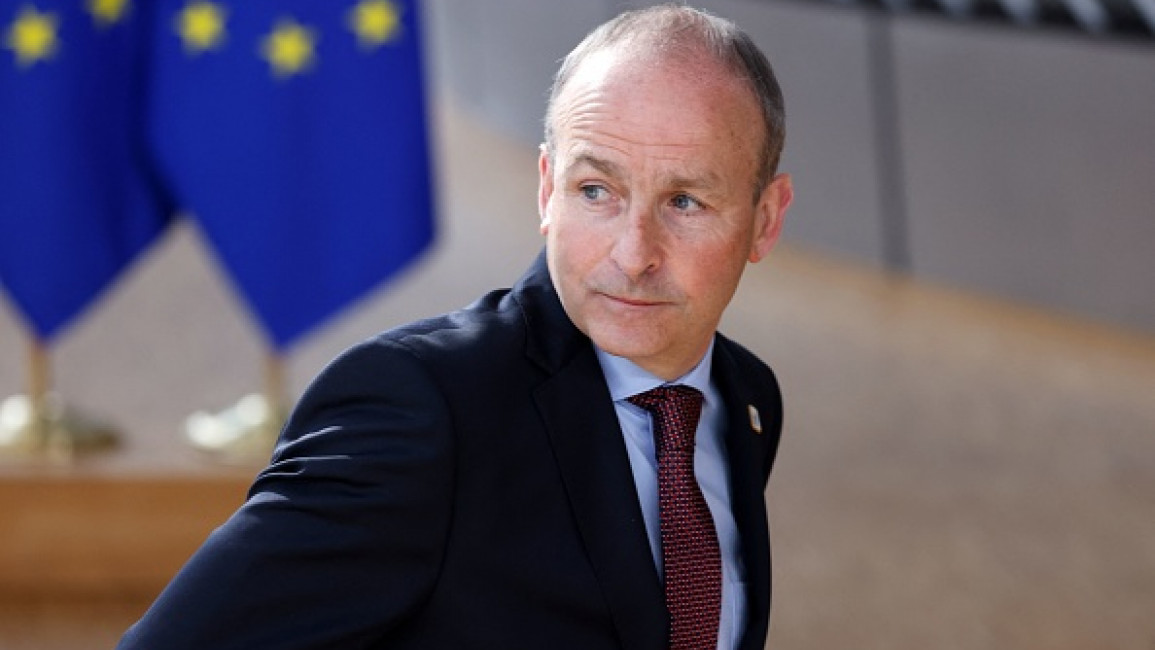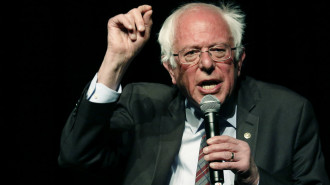EU mulls sanctions if Israel refuses to comply with ICJ ruling after Rafah massacre
The European Union said it will consider imposing sanctions on Israel if the country refuses to comply with the International Court Justice’s (ICJ) order to halt its military campaign in Rafah, Ireland's foreign minister Micheal Martin said on Monday.
During a meeting of the European Political Community intergovernmental forum, EU leaders reportedly "engaged in significant discussions" on the prospect of sanctioning Israel if it continued to violate the top court’s ruling.
Martin said that there was a "strong discussion on the provisional orders of the International Court of Justice", with "very clear views that Israel should adhere to those provisional orders to open the border crossing with Rafah and cease its military operations in Rafah", reported the Irish broadcaster RTE, as cited by Politico.
"Certainly, if compliance isn't forthcoming, then we have to consider all options," he stated.
The foreign minister's comments came after Israel on Sunday carried out a massacre at a camp for displaced people in Rafah , Gaza’s southernmost city and a so-called safe zone.
Multiple rockets rained down on the camp, killing at least 45 Palestinians, including women, children and the elderly. The bombings injured hundreds of others who were sheltering in tents near a warehouse belonging to UNRWA, the UN agency for Palestinian refugees.
The strike set tents alight and caused a fire to spread rapidly through the camp, burning people alive. Horrifying footage showed charred, beheaded and dismembered children, prompting global outcry against Israel's attack.
The ICJ ruled last Friday that Israel must stop its military offensive in Rafah, as well as open the border crossing between the city and Egypt, allowing for the delivery of much-needed humanitarian aid.
Following the meeting, the Irish top diplomat added that there was "some distance between people articulating the need for a sanctions-based approach if Israel does not comply with the ICJ's rulings", and "obviously there is not an agreement at the EU Council level given the different perspectives there".
However, Martin said that one of the meeting's conclusions "was to convene a meeting of the EU-Israeli Association Council to raise our grave concerns", seeking from Israel "a response in terms of complying with the orders of the Court".
The Irish FM also stressed the importance of accountability, international humanitarian law and adherence to human rights.
The Republic of Ireland will officially recognise a Palestinian state on Tuesday after it announced plans to do so last week alongside Spain and Norway.
The country has been at the forefront of pro-Palestinian solidarity in Europe over the years, with widespread sympathy in Ireland for Palestinians due to common experiences of imperialism and occupation.
Israel has been waging a near-eight-month indiscriminate war on the Gaza Strip, killing at least 36,096 Palestinians, mostly women and children.
Its atrocities in the enclave have been described as war crimes, with South Africa taking the country to the ICJ late last year and accusing it of genocide.




 Follow the Middle East's top stories in English at The New Arab on Google News
Follow the Middle East's top stories in English at The New Arab on Google News
![The US vetoed a UN Security Council (UNSC) resolution demanding a ceasefire in Gaza [Getty]](/sites/default/files/styles/image_330x185/public/2185152251.jpeg?h=7ef8ac04&itok=RpLSj2pu)

![An attack by paramilitary forces in Sudan has killed at least 40 people [Getty]](/sites/default/files/styles/image_330x185/public/2182364341.jpeg?h=a5f2f23a&itok=r8Fkhxdj)